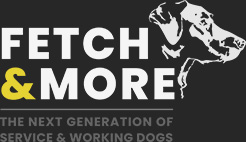
July is Disability Pride Month. While the month serves as an important reminder of inclusion and awareness, supporting people with disabilities and fostering an inclusive and accessible environment goes beyond awareness.
Sadly, many people across the globe still face discrimination and encounter daily microaggressions due to their disabilities. That’s why it’s more important than ever to understand how we can all support the disability community and work to create a more inclusive and accessible environment every day.
What is Disability Pride Month?
Disability Pride Month was established to recognize the history, achievements, and experiences of the disability community. It was started in July 2015 to commemorate the 25th anniversary of the passing of the Americans with Disability Act (ADA).
While Disability Pride Month started in the United States, it’s now celebrated worldwide every July. Many cities observe the month with parades, advocacy events, and educational seminars, centering on the voices of people with disabilities and providing education and understanding to those without disabilities.
What is The Significance of the ADA?
The ADA is a civil rights law that was passed on July 26, 1990. The law prohibits discrimination based on disability, requires employers to provide reasonable accommodations to employees with disabilities, and mandates that public accommodations be accessible.
The ADA defines a disability as “a person who has a physical or mental impairment that substantially limits one or more major life activities, a person who has a history or record of such an impairment, or a person who is perceived by others as having such an impairment.” (ADA).
This inclusivity ensures those with a wide range of disabilities—such as cancer, depression, or blindness—are protected. Due to its inclusive nature, the ADA does not have a comprehensive list of all covered disabilities, but it does provide a list of examples.
Ways to Help Foster an Inclusive, Accessible Environment
Creating an inclusive and accessible environment starts with everyday choices. Small actions can lead to meaningful change—especially when they center on empathy, understanding, and access. Whether at home, in the workplace, or online, there are a few practical ways to support disability inclusion:
- Educate: Educate yourself on disability rights, understand ableism, share resources, and use inclusive language.
- Digital Accessibility: Familiarize yourself with the Web Content Accessibility Guidelines (WCAG) and ensure your digital content meets their standards.
- Use Your Voice: Advocate for accessible facilities and support systems, highlight inaccessibility, call out ableism and microaggressions, and consider emailing local politicians to get involved.
- Support and Amplify: Prioritize lived experiences. Listen without interrupting or assuming, and let those with disabilities define what support looks like for them.
- Make Space: Make events, meetings, and gatherings accessible by offering accommodations like ASL interpreters, quiet spaces, or virtual attendance options.
Remember, not all disabilities are visible. Be patient, offer help without assuming, and always ask before taking action on someone’s behalf.
How Does Fetch and More Help?
At Fetch and More, we not only offer services designed to support individuals with disabilities, but we do so in an accessible and approachable manner.
- Virtual Services: All of our services are virtual, ensuring individuals can access their classes at their own pace, and on their own schedule.
- Emotional Service Dog Training: Our virtual emotional service dog training courses help you train your dog to support you in the ways you need.
- Dog Trainer Services: Our virtual dog trainer services help individuals who want to become certified dog trainers, enabling them to support their local community.
- Virtual Disability Support: Our lead instructor, John, has expertise in Alternative Dispute Resolution and a strong understanding of the Americans with Disabilities Act. Through in-depth legal research, strategic collaboration, and direct engagement with parties involved in ADA violations, we are committed to protecting your rights and advocating for fair and accessible outcomes.
Sign Up and Learn More Today
You can view all our dog training courses at our Service Training Courses Hub or check out our trainer courses on the Trainer Course page. For anything else, don’t hesitate to contact us. Whether you want to ask us some questions, learn more about our virtual disability support, or get started, we’re here to help.



